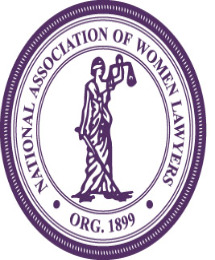
Don’t let your online activities land you on the bar discipline docket.
The New York State Bar Association’s Commercial and Federal Litigation Section has published a set of Social Media Ethics Guidelines that provide useful guidance for all lawyers (not just New Yorkers) on the use of social media. While the Guidelines set forth a broad outline for dealing with social media, lawyers will still need to think hard about their particular situations. Below are some of the guidelines that lawyers and law firms should keep in mind.

On-Line Advice: What should you do if a Facebook friend posts a legal question? Answer it? Have you created an attorney-client relationship? Do you owe a duty to all of your friend’s Facebook friends who will see that advice and possibly rely on it? The New York Guidelines suggest that you should keep any reply broad and general. “A lawyer may provide general answers to legal questions asked on social media. A lawyer, however, cannot provide specific legal advice on a social media network because a lawyer’s responsive communications may be found to have created an attorney-client relationship and legal advice also may impermissibly disclose information protected by the attorney-client privilege.” (Guideline 2.A). Great social media advice, but the Guidelines do not say when a “general answer” becomes “specific advice.” A good rule of thumb would be – if the request is specific and includes specific information about your friend’s situation – do not answer the question on Facebook.
Advertising: The Guidelines also say that if you use your social media profile primarily for your law business – think LinkedIn – it is subject to the rules governing attorney advertising and solicitation. (Guideline 1.A). When using Twitter to market your practice, the Commentary to the Guidelines says that you may “utilize commonly recognized abbreviations for information that is required in attorney advertisements.” The Guidelines thus suggest that you will need to devote some of your 140 characters to complying with advertising rules, but they don’t say exactly what content would make for a compliant Tweet.
New York’s Rule of Professional Conduct 7.1(f) requires all lawyer advertising to say “attorney advertising.” Presumably, then, attorneys can say “Att’y Ad” or something similar in their Tweets. The Massachusetts Rules of Professional Conduct do not require “Attorney advertising” but do require that any advertising “include the name of the lawyer, group of lawyers, or firm responsible for its content.” Mass. R. Prof. C. 7.2(d). Thus, Massachusetts lawyers may have a few extra characters in their advertising Tweets than New York lawyers, though they should Tweet under their own names – not a clever screen name.
That said, the Massachusetts rules could still raise compliance issues for lawyers who use social media – particularly concerning Rule 7.3 which governs solicitation of professional employment. For example, the Office of Bar Counsel has previously advised that “bulletin boards, which display information in cyberspace and allow people to post and respond to messages, … do not involve real-time, live interaction between lawyers and prospective clients” and are thus in-bounds for lawyers to advertise and solicit clients. On the other hand, “solicitation through … interactive computer-accessed chat rooms is prohibited as in-person solicitation” where the chat rooms “offer conversation that is live, interactive and conducted in real-time or near real-time.” On this rationale, a lawyer who finds herself in a “real-time” Twitter or Facebook conversation could unwittingly breach Rule 7.3(d) (prohibiting “in person” solicitation).
Among the other useful tips from the New York Guidelines:
- If someone posts a statement to your social media profile that does not comply with advertising guidelines, you may have an obligation to remove the post. (Guideline 1.C);
- “A lawyer may view the public portion of a person’s social media profile or public posts even if such person is represented by another lawyer,” including in situations where the person’s account tracks the identities of the viewers. (Guideline 3.A);
- A lawyer may request permission to view the restricted portion of an unrepresented person’s social media website or profile. However, the lawyer must use her full name and an accurate profile, and she may not create a different or false profile in order to mask her identity.” (Guideline 3.B);
- The situation is different if the person is represented. “A lawyer shall not contact a represented person to seek to review the restricted portion of the person’s social media profile unless an express authorization has been furnished by such person.” (Guideline 3.C);
- You can advise a client to “take down” a post, although the client may have an obligation to preserve the information removed. (Guideline 4.A).
The Guidelines are not universal, however, and the drafters caution that there are numerous conflicting opinions and rules around the United States. For example, a recent New Hampshire ethics opinion has a different take on Guideline 3.B, finding that a lawyer must disclose her involvement in a matter when sending a “friend” request to an unrepresented witness to view restricted portions of the witness’ profile. “[S]ending a Facebook friend request in-name-only constitutes a misrepresentation by omission, given that the witness might not immediately associate the lawyer’s name with his or her purpose and that, were the witness to make that association, the witness would in all likelihood deny the request.” N.H. Bar Ass’n Ethics Advisory Comm., Op. 2012-13/05.
As you incorporate social media into your practice, you must research the law, understand the capabilities of the social media platforms you use, and carefully consider your online activities in connection with the Rules of Professional Conduct. In Massachusetts, if in doubt, you could contact the Office of Bar Counsel’s ethics hotline and ask. The hotline is available between 2 and 4 p.m. Monday, Wednesday and Fridays at (617) 728-8750. Ultimately, your best defense against stepping into a social media ethics landmine is to stop and think before you click.
Of:
Like this:
Like Loading...








